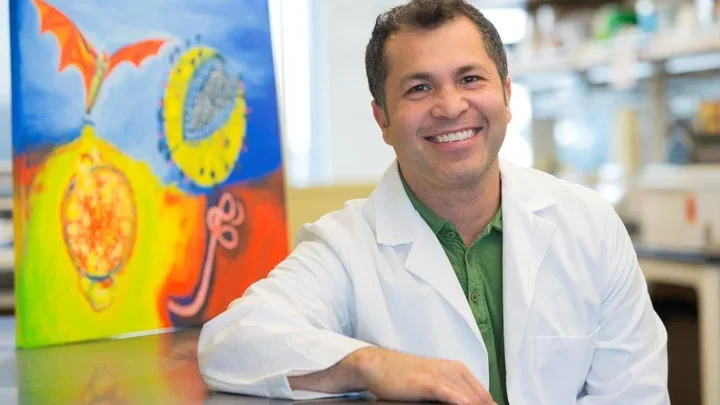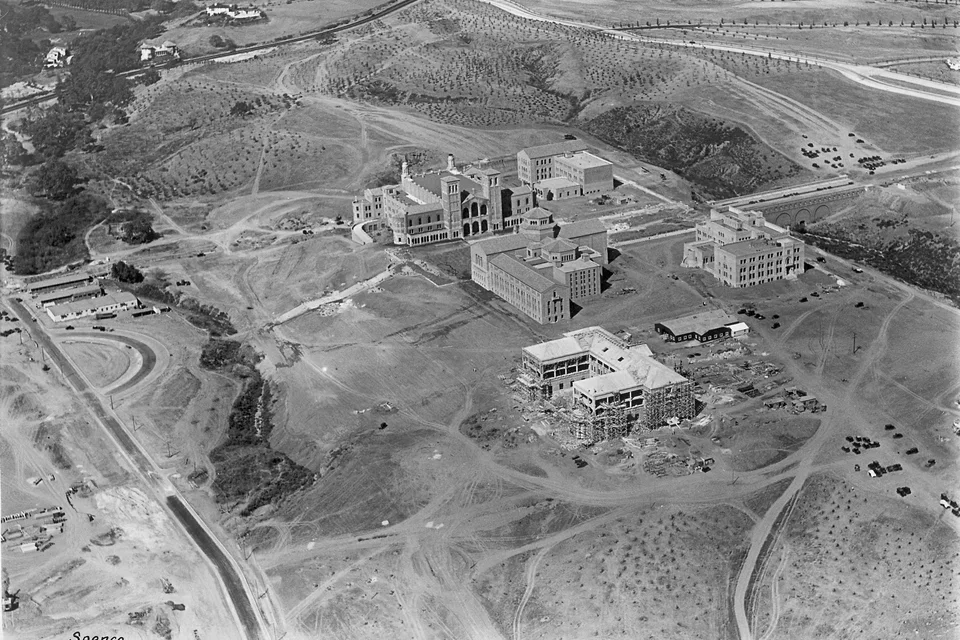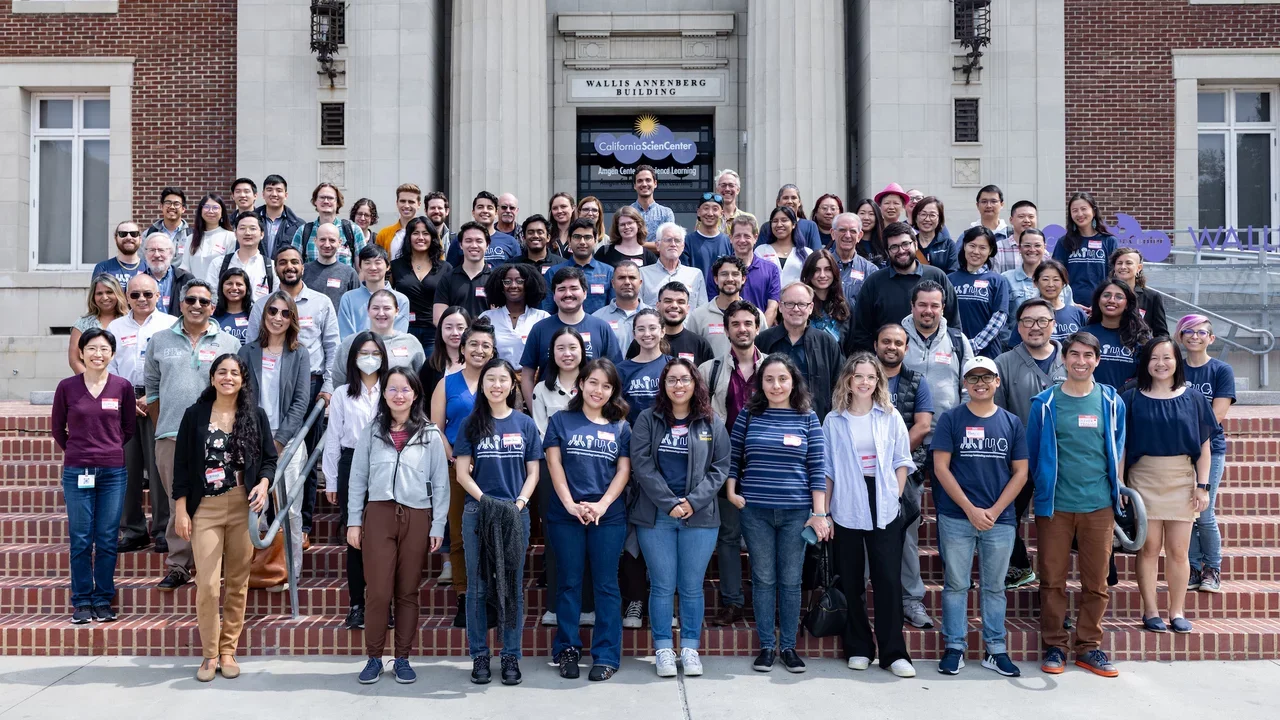About
Mission Statement
The MIMG department’s mission is to provide the highest quality research and education possible in the fields of Microbiology, Immunology and Molecular Genetics, informed by diverse scientific viewpoints. To meet this goal, we shall foster an inclusive climate and recruit a diverse group of scientists, educators, and students, who will address the most relevant problems in microbial pathogenesis, host cell biology, immune defense, and the host-pathogen interface.
Achievements
The scientific endeavors of the MIMG department have yielded remarkable contributions in various fields of research and medical advancements. These include reporting many of the earliest atomic resolution cryoEM structures and pioneering studies in host-pathogen interactions. Notable discoveries also include the elucidation of the gut-brain axis, seminal studies in systemic and immune cell metabolism, and mechanistic understanding of tissue inflammation, autoimmunity, and immune deficiencies.
Clinical advancements include pivotal discoveries of BCR-ABL oncoproteins in leukemias, and the co-discovery of the gene for Bruton's tyrosine kinase have significantly impacted the development of targeted therapies for various cancers, including the first targeted therapy for chronic myelogenous leukemia, Gleevec. Methods for expressing antibody genes in lymphoid cells have paved the way for the genetic engineering of antibodies and antibody-based therapeutics. The cloning of HTLV II, a human T-cell leukemia virus, contributed to diagnostic tests widely used in blood banks globally and the development of the first animal model for HIV pathogenesis. Ongoing clinical trials for adenosine deaminase-deficient severe combined immunodeficiency (ADA-SCID) have successfully cured over 50 babies to date, and CD19/CD20 bispecific chimeric antigen receptor (CAR)-T cell therapy has led to complete responses in B cell lymphoma patients.
Message from the Chair:
Welcome to MIMG! Our department takes pride in its faculty, who are recognized globally for their research, and the total research funding they have received ranks among the highest in the country. Research conducted in our department covers a broad range of areas such as Immunology, Microbial Biology, Molecular Genetics, Parasitology, Structural and Systems Biology, and Virology. We collaborate closely within our department and with other institutes, centers, and departments at UCLA to advance our interdisciplinary research and teaching missions. We encourage you to explore our MIMG website to learn more about our community.
Hector Aguilar-Carreno, PhD
Professor and Sherie L. Morrison Legacy Department Chair
Department of Microbiology, Immunology, and Molecular Genetics
David Geffen School of Medicine
Division of Life Sciences, College of Letters and Science
University of California, Los Angeles
Active Past President, American Society for Virology

Learn About the MIMG Department
History
MIMG was formed by fusing two departments: Microbiology and Molecular Genetics (M&MG) from the UCLA College of Letters and Science, and Microbiology and Immunology (M&I) from the UCLA School of Medicine. The history of M&MG goes back to 1920, when general bacteriology was first taught in the Department of Biology at the Vermont Avenue campus of the Southern Branch, University of California (Berkeley was the Northern Branch), prior to the relocation of UCLA to the Westwood campus in 1929.
Bacteriology became a regular undergraduate course offering in 1933 in the College of Letters and Science, and Bacteriology became an independent department in 1935. Greatly expanded facilities for research became available in 1955 when the Department moved into the newly constructed Life Sciences Building. Reflecting a changing research emphasis, the name was changed from the Department of Bacteriology to the Department of Microbiology and, in 1989, to the Department of Microbiology and Molecular Genetics. The Molecular Sciences Building, completed in 1994, provided space for administrative staff and for much of the research activities of M&MG.

The Department of Microbiology and Immunology in the School of Medicine was founded in 1948 as the Department of Infectious Diseases. Initially, the research of the department was performed at V.A. Hospitals in the San Fernando Valley, Long Beach, and West Los Angeles. In 1953, the School of Medicine building was completed and the Department moved to the Center for the Health Sciences. In 1964, the unit was renamed the Department of Medical Microbiology and Immunology and in 1974 became the Department of Microbiology and Immunology. Over time, the interests of both M&MG and M&I had diversified to include the study of bacteria, viruses, parasites, the immune system and cancer, and both departments evolved into similar entities. The major distinguishing feature was that M&MG was responsible for undergraduate education, while M&I focused on medical students. Both had similar graduate programs and were actively involved in training postdoctoral fellows.
Acting on the perception that duplicate departments existed, a move for consolidation was initiated in 1995 by Dr. Jerry Levey, who was then Dean of the School of Medicine, and Dr. Fred Eiserling, former Dean of Life Sciences (and past chair of M&MG). In 1996 the faculty of both departments voted to approve a merger, and a key issue was the appointment of a chair to lead the new department and its consolidation. Since several years would be required to obtain formal approval from the UCLA Academic Senate and the UC Office of the President, a policy of reciprocal joint appointments was adopted to effectively merge the departments. This was accompanied by the formation of a common teaching pool, a move toward the establishment of equity in teaching responsibilities, and the formation of a common administrative core. In 1997, the two departments began functioning as a single academic unit, although the merger was not officially approved until 2001. The inaugural Chair position was offered to Dr. Sherie Morrison.
A reporting structure was established early on in which the chair of Microbiology, Immunology, and Molecular Genetics (MIMG) reports to both the Dean of the Division of Life Sciences of the UCLA College and the Dean of the David Geffen School of Medicine. Financial support and program commitments are provided by both units, while organizational oversight is facilitated by the Assistant Dean of Life Sciences, in collaboration with the Sr. Assoc. Dean of Finance and Administration in the School of Medicine.
After 10 years as department chair, Dr. Sherie Morrison stepped down as Department Chair in 2002 and a search for a new chair was initiated. After an extensive internal and external search, Dr. Jeff F. Miller was offered the position and stepped in as Department Chair on July 1, 2002. After 12 years, Dr. Miller transitioned to Director of CNSI in November 2014 and Dr. Morrison stepped in as interim Chair, while a search was conducted for a replacement. That search resulted in the appointment of Dr. Jerome Zack as Chair on Dec 1, 2015.
